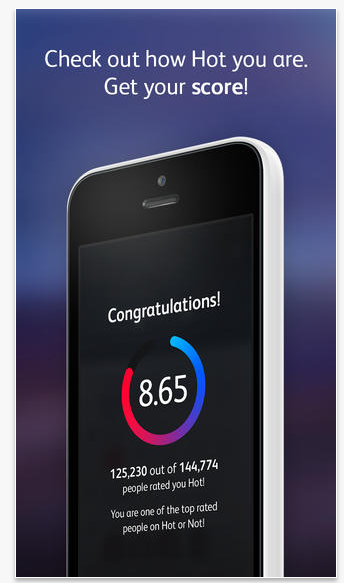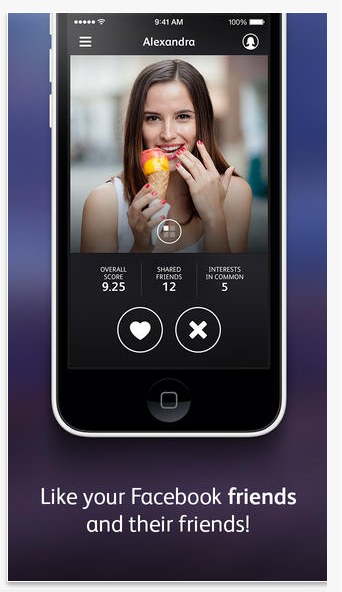
First, let me begin with the fact that I love apps. In fact, I am probably addicted to them. I frequent the app store like a chef frequents the produce aisle.
I look for apps to help me be more efficient in my work, apps to get healthy, and apps that inspire and challenge me to to learn and grow. Some of my favs are Evernote, Pinterest, Pandora, 7 Minute Workout, Yowza, and if you reach for my phone when I’m using my Twitter app, be warned, you may just loose a hand! Each time I discover one of these apps, I give a mental standing ovation to the innovators who are out there 24/7 using their skills to push the envelope of technology to benefit all of us.

I also love that my 13 year-old can share laughter and build friendships with her besties on apps like SnapChat or Instagram and even with relatives who live half a world away. My kids and I sit and laugh for hours over some of the most creative, hilarious Vine videos created by teens I’ve ever seen.
So it’s rarely the physical app that is the problem, it’s the kids or adults using them that pose the problem—which translates into a problem for your family if an online encounter goes south.
That said, there are some apps that—from a parent’s point of view—will never get a “family friendly” thumbs up. One of those apps is Hot or Not, an app that allows girls (or guys) to upload their photos and have hundreds or even thousands of others rate their physical appearance.
I won’t go into the obvious emotional hits your child will take if he or she uses this app. One review of the app on theApple Store, from a young woman, gives parents some great insight:
“. . .the guys all had their shirts off and were too cocky. I got inappropriate photos and messages saying “let’s meet up”. I mean I got some nice messages saying “wow you are so beautiful” or whatever but those types of messages get old fast. The guys egos were way too high. Anybody can get a six pack. I like a guy who is humble and intelligent. If you are like me, then this app is not for you. I also noticed that the girls who showed the most body parts got the highest ratings. As for me I showed no inappropriate body parts and I got low ratings. It was pretty pathetic. I’m a model and I was in the low 5 ratings. Sorry if I have respect for myself. I’m not being a hater because there were some beautiful girls on there but I did not deserve the ratings that I got.”
The app claims to be “The hottest online community with over 190 million members,” and encourages users to “Get in. Get seen. Get fans! Check out if you are Hot, find interesting people around you and chat with them.”
Other apps I would put into the mix of little social value include apps that allow anonymity such as Ask.fm, Whisper, and Yik Yak. I will write more about Yik Yak after I’ve used it for a while but the app description pretty much axes any redemptive uses from this parent’s point of view: “Yik Yak lets you post anonymously or under an alias—you can become the talk of the town and never get discovered—it’s an open space where anyone can talk about anything.”
Yeah—that app description is pretty much the opposite of what I personally try to teach my children, which is accountability and responsibility for your words and actions online and offline.
Can kids infuse these anonymous app platforms with good? Sure they can. And many do every day. They boldly combat stereotypes, stand up for one another, try to educate, and often thwart bullies. Are those kids in the majority of kids using these anonymous apps? We can hope but the very word “anonymous” opens the door to the contrary being true. So is forbidding your child to use these kinds of apps really an effective approach? That’s up for debate depending on your parenting style and your family dynamic. For now, we’re forging new roads together and taking the best practices that emerge and weaving them into a useful plan that works . . . for today.

Here’s a basic approach for overall app safety:
- Know where they go. Look at their phone apps. Create accounts on apps they frequent. Follow your kids online (without interacting). Use the app for several weeks. Watch interactions. Make your own assessment and coach them from there.
- Talk. Talk. Then talk some more. Social media and peers will only have more influence than you if you are a silent, passive parent. Fold conversations about social interactions a part of your daily routine. What positives happened today online? What went wrong? How did you respond? Did you see anything funny? Show me some cool videos!
- Get a family game plan. Clearly communicate your family values and expectations of online behavior. Also, make your kids understand the consequences if they fudge their modesty on posts or photo uploads. More importantly, have the guts to enforce the consequences and be consistent.
- Catch your kids being awesome! While their mistakes can show up online in neon to a parent, be sure to call your kids out for just being great people online! Many kids are showing up adults online when it comes to leadership, courage, and creativity—and your child is likely one of those kids! Expect the awesome, and tell them when you see it!












